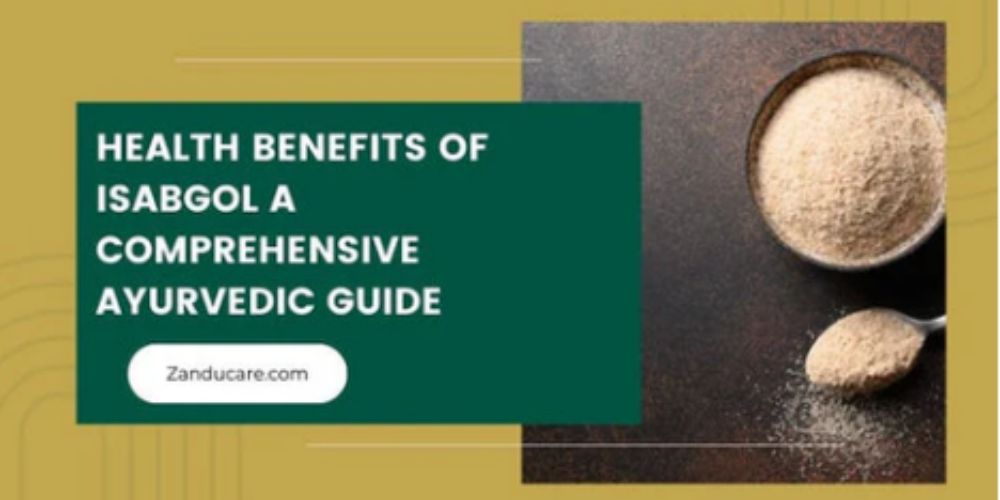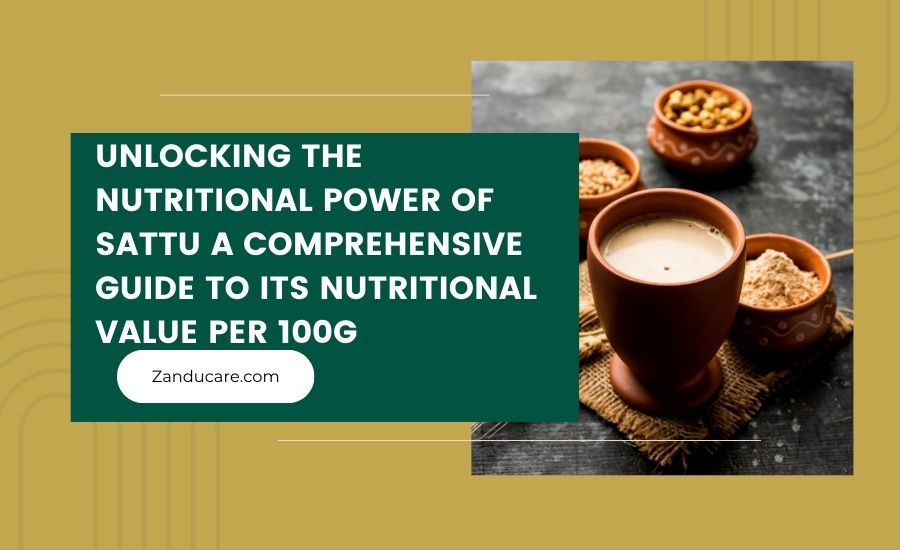
Isabgol Guide: Top 9 Benefits, Uses, Effects & Precautions
Isabgol, sometimes called psyllium husk, is a naturally occurring dietary fibre made from Plantago Ovata plant seeds. It is renowned for its numerous health advantages and has long been a mainstay in Ayurveda and conventional medicine. It is frequently utilised because of its capacity to enhance heart health, control blood sugar, and improve digestive wellness.
This article examines the many health advantages of Isabgol, looking at both the traditional applications and the scientific data supporting its effectiveness. Readers can choose wisely when adding this adaptable fibre to their daily routines for general wellness by being aware of the qualities and uses of Isabgol.
|
Did you know?
|
What is Isabgol?

Isabgol, or psyllium husks, is a fibre derived from Plantago ovata seeds' husks. It has an oily and gluey texture and is frequently used as a human digestive aid. Plantago ovata is a medicinal plant with long, thin leaves primarily found in Asia, North Africa, and the Mediterranean region. It is also known as desert Indianwheat, blond plantain, and blond psyllium.
The Sanskrit words "asp" and "ghol," which translate to "horse flower," are the source of the term "Isabgol."
Nutritional profile of Isabgol
The nutrients present in this are as follows:
|
Nutrient |
Percentage |
|
Protein |
0.94 |
|
Albumin |
35.8 |
|
Total Carbohydrates |
84.98 |
|
Globulin |
23.9 |
|
Prolamin |
11.7 |
Health Benefits of Isabgol
Below are the health benefits of Isabgol:
Helps in Constipation
Because Isabgol is high in fibre and has a Guru (heavy) consistency, it helps relieve constipation. Its mild Rechana (laxative) properties facilitate easy faeces excretion and also increase peristaltic and intestinal contractions.
Also, check our in-depth guide on "What is Constipation?" to know more.
Promotes gut health
Isabgol is an effective detoxifier that removes all undesirable pollutants and cleanses the gastrointestinal wall. Clearing the path and facilitating food flow through the intestinal tract, it promotes the digestive tract's optimal operation. Consuming Isabgol regularly stimulates the digestive system and provides immediate relief from colitis, acid reflux, stomach ulcers, and other digestive issues.
Good for celiac disease
In one study, the psyllium-modified bread dough samples demonstrated an acceptance rate of up to 97.0% for those without celiac disease and 93.0% for those with the condition.
This gives those with celiac disease a gluten-free option while preparing their meals. Moreover, psyllium husk reduces excess fat and calories from meals when added to the diet.
Promotes weight loss

This herb has great potential as a natural weight-loss aid. Isabgol cleanses the body and regulates hunger. Dietary fiber, by forming a viscous compound, condenses food cravings, boosts fullness, lowers body weight, lowers body mass index, and lowers total fat consumption. Isabgol, therefore, aids in calorie restriction and encourages weight loss.
Isabgol for loose motion/ Diarrhoea
Isabgol not only relieves constipation but also aids in relieving diarrhoea by promoting regular stool production and decreasing the number of liquids. Psyllium husk powder in the stomach postpones the emptying of the stomach by making the chyme more viscous and slowing down its travel through the intestine. Psyllium husk mixed with calcium is a low-cost and practical substitute for lessening the length and intensity of persistent diarrhoea.
Lowers cholesterol
Isabgol binds to bile acids and fats, enabling the body to expel cholesterol. Isabgol significantly raises good cholesterol (HDL), decreases bad cholesterol (LDL), and boosts the synthesis of bile acids. Additionally, it lowers the risk of heart disease and regulates the amount of cholesterol and triglycerides that are further absorbed from the diet.
Good for diabetes
Those with diabetes may find that Isabgol helps lower their blood glucose levels. Psyllium husk creates a viscous gel in the stomach during digestion, raising chyme viscosity. The semi-digested food in the stomach is called chyme. Chime's higher viscosity slows down how quickly complex carbs are metabolised by digestive enzymes, lowering the rate of digestion.
Additionally, this efficiently lowers blood glucose levels by slowing down glucose absorption. As a result, Isabgol reduces the glycemic index of food consumed, which is beneficial for controlling blood glucose levels in those with Type 2 diabetes and those at risk of getting the disease.
Isabgol for ulcerative colitis
Isabgol's ability to balance Pitta and Vata makes it beneficial in cases of inflammatory bowel illness. Because Isabgol is Guru (heavy), it absorbs more water and gives the waste more volume, which makes it easier for the stool to move through and reduces the frequency of motion. Because of its Sita (potency), it also aids in the prevention of intestinal irritation.
Manages haemorrhoids
Isabgol is beneficial for those who have piles or haemorrhoids. Because of its natural laxative qualities, it helps soften stools, which facilitates bowel movements and eases strain on the rectum. This helps lessen the pain, itching, and bleeding that are related to hemorrhoids.
Ayurvedic perspective on Isabgol

In Ayurveda, Isabgol is highly valued for its digestive benefits. Practitioners use it to treat constipation and promote regular bowel movements. Isabgol balances the Vata and Pitta doshas, which helps maintain overall health. Its cooling properties soothe the digestive tract and reduce acidity.
Ayurvedic formulations often combine Isabgol with herbs like Triphala to enhance its effects. Remedies include mixing Isabgol with warm water or milk to ease digestion and cleanse the colon. Its natural fibre content supports gut health, making Isabgol a popular choice for those seeking a gentle, effective solution to digestive issues.
The recommended dosage of Isabgol
Husk powder and capsules are the two forms of Isabgol supplements available; the dosage varies depending on the product.
Powder: Take 1-2 tsp of Isabgol Husk Powder with a glass of water twice daily before meals.
Isabgol Capsule: Take one or two capsules with lots of water before meals twice daily.
Isabgol powder can also be used with curd, milk, or honey.
Side-effects of Isabgol
Psyllium may have negative side effects because of its laxative properties and capacity to increase intestinal size. Therefore, you may want to take into account some of Isabgol's most common adverse effects, including diarrhoea, abdominal pain, gas, frequent bowel movements, and nausea, before deciding to start taking it regularly.
If you experience itching, trouble breathing, skin rashes, facial and throat swelling, and vomiting symptoms, consult your physician.
Precautions to be taken while taking Isabgol
|
Precaution |
Explanation |
|
Stay hydrated |
Drink plenty of water when taking Isabgol. It absorbs water to form a gel-like substance that aids digestion. Insufficient water intake can cause choking or intestinal blockage. |
|
Consult a doctor |
Seek medical advice before using Isabgol, especially if you have underlying health conditions like diabetes or heart disease. |
|
Avoid overuse |
Do not consume more than the recommended dose. Overuse can lead to bloating, gas, or cramping. |
|
Monitor blood sugar |
If you have diabetes, monitor your blood sugar levels closely. Isabgol can affect blood sugar levels. |
|
Check for allergies |
Ensure you are not allergic to Isabgol or Plantago ovata seeds. Allergic reactions can include skin rashes, itching, or difficulty breathing. |
|
Separate from medications |
Take Isabgol at least two hours before or after other medications. It can interfere with the absorption of certain medications. |
|
Pregnancy and breastfeeding |
Pregnant and breastfeeding women should consult their healthcare provider before taking Isabgol. |
|
Monitor for side effects. |
Be aware of potential side effects like abdominal pain, nausea, or difficulty swallowing, and discontinue use if they occur. |
|
Start slowly |
Introduce Isabgol gradually into your diet to allow your digestive system to adjust. |
Conclusion
Psyllium husk, or Isabgol, has many health advantages, such as better digestion, controlled blood sugar, and strengthened heart health. Its application in Ayurveda emphasises its ability to maintain general well-being by balancing the Pitta and Vata doshas. As you incorporate Isabgol into your daily regimen, don't forget to start cautiously, stay hydrated, and see a doctor if you have any health issues.
These safety measures will allow you to take advantage of this natural fiber's advantages without risk. Including Isabgol in your diet might be a quick and easy approach to improving the health of your digestive system and your general well-being.
FAQs
1. What is the best time to take Isabgol?
Isabgol is best taken with milk or water right before bedtime. This timing facilitates regular bowel movements in the morning and aids in digestion overnight. You can also take it before meals to aid in appetite control.
2. Can Isabgol help with weight loss?
Yes, Isabgol can aid in weight loss. Because of its high fibre content, it makes you feel fuller for longer and consumes fewer calories overall. When taken before meals, it aids digestive health and appetite control, which helps with weight management.
3. Is Isabgol safe for daily use?
Isabgol is generally safe for daily use when taken in recommended doses. It supports digestive health and regular bowel movements. However, consult a doctor before starting daily use, especially if you have any health conditions or are taking other medications.
4. How does Isabgol help in lowering cholesterol?
Isabgol lowers cholesterol by linking to bile acids in the intestines and allowing them to be eliminated from the body. This procedure lowers blood cholesterol levels and supports heart health by making the liver consume cholesterol to make more bile acids.
5. Can Isabgol be taken during pregnancy?
Before taking Isabgol, pregnant women should speak with their healthcare professional. Although it might ease constipation associated with pregnancy, seeking professional counsel assures the safety of both mother and child. Always abide by your doctor's dosage instructions.
6. How does Isabgol help with diabetes management?
By reducing the sugar absorption rate in the intestines, Isabgol helps control diabetes by stabilising blood sugar levels. Its high fibre content, which also helps with glycemic control, makes it a good supplement for diabetics.
7. Are there any side effects of taking Isabgol?
Bloating, gas, and cramping in the abdomen are possible adverse effects of Isabgol. In rare instances, consuming without enough water may result in allergic responses or intestinal blockage. Ensure you always take the prescribed amount, and see a doctor if you have any negative side effects.
8. How to consume Isabgol for constipation?
To relieve constipation, mix one to two teaspoons of Isabgol in a glass of warm water or milk and drink it before bedtime. Ensure you drink plenty of water throughout the day to aid in its effectiveness and prevent any potential blockages.
References:
- It is renowned for its numerous health advantages and has long been a mainstay in Ayurveda and conventional medicine.(https://www.researchgate.net/)
- Isabgol, or psyllium husks, is a fibre derived from Plantago ovata seeds' husks. (https://www.researchgate.net/)
- Because Isabgol is high in fibre and has a Guru (heavy) consistency, it helps relieve constipation.(https://www.researchgate.net/)
- Lowers cholesterol. (https://www.researchgate.net/)
- Those with diabetes may find that Isabgol helps lower their blood glucose levels. (https://www.researchgate.net/)






Leave a comment
This site is protected by hCaptcha and the hCaptcha Privacy Policy and Terms of Service apply.